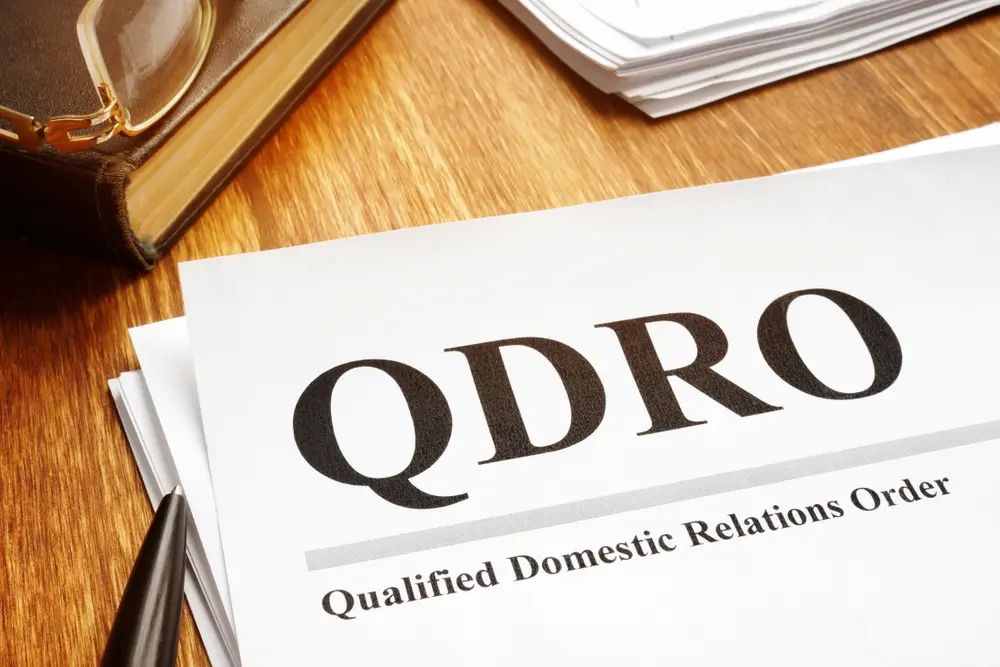Divorce: Why Do I Need a QDRO?~ 2 min read
When you’re finalizing your divorce, you may think everything is settled once the judge signs the agreement. But if you’re dividing retirement accounts, you’ll likely need one more step: a Qualified Domestic Relations Order, or QDRO (pronounced “quad-ro”).
What a QDRO Actually Does
A QDRO is separate from your divorce judgment and plays a key role in making sure the division of retirement accounts is recognized and processed properly. Think of a QDRO like the title to a car. If you’re awarded a vehicle in the divorce, the judgment gives you ownership, but you still have to re-title it at the DMV. The same is true for retirement plans. A QDRO acts as the legal document that transfers part of a retirement account, such as a 401(k) or pension, from one spouse to the other.
Even if the divorce judgment says you’re entitled to a portion of a retirement account, the plan administrator won’t divide anything until the QDRO is submitted and approved. This step is governed by federal law and requires specific wording and approval from the plan administrator. Without it, the retirement account remains undivided, no matter what the divorce agreement says.
Why Timing and Accuracy Matter
If you delay completing a QDRO, you risk running into problems years later, especially with pension plans. You might find out too late that the account was never divided or that survivorship benefits were never addressed. You could learn that your spouse improperly removed monies that you were entitled to. These issues can lead to missed opportunities or financial surprises down the road.
To avoid these problems, it helps to start the QDRO process early. In Mediation or Collaborative Divorce, the QDRO can be prepared amicably alongside the settlement paperwork. This helps you avoid delays and unnecessary expenses.
Not Every Attorney Does QDROs
Not all family law attorneys prepare QDROs. These documents follow rules under ERISA, a federal law that many lawyers are unfamiliar with. As a result, some attorneys refer QDROs out to lawyers who practice in this area. It is not uncommon for court judgments to have errors in describing retirement accounts, which only adds to the difficulty. That’s why it’s helpful to work with someone who understands how these documents should be written and approved.
Family Ally Can Help Protect Your Retirement
A QDRO isn’t just paperwork. It’s a necessary step to transfer ownership of retirement funds after a divorce. If you skip it or put it off, you may find yourself facing problems when it’s time to retire or when your former spouse does.
If you’re dividing retirement accounts, Family Ally can guide you through the QDRO process and can make sure everything is handled correctly. Contact Jennifer Piper at 314-449-9800 to schedule a consultation. We’ll work with you to find solutions that protect your interests and your future.
Family Ally is located at 130 S. Bemiston Ave., Suite 608, St. Louis, MO 63105.
Jennifer R. Piper is a family law attorney, mediator, and parenting coordinator with more than 20 years of experience serving families in the St. Louis area. She is certified as a Guardian ad Litem and frequently appointed by courts to represent children in high-conflict cases. Jennifer is a former Chair of the Family and Juvenile Law Section of the Bar Association of Metropolitan St. Louis and an active leader in local and state bar organizations.
Her professional recognition includes being named to The Best Lawyers in America® (2017–2025), Missouri Super Lawyers (2021–2024), and receiving a Women’s Justice Award from Missouri Lawyers Weekly. Jennifer also holds an AV Preeminent rating from Martindale-Hubbell. She regularly speaks on family law topics and has helped shape family court procedures through her service on multiple committees.





